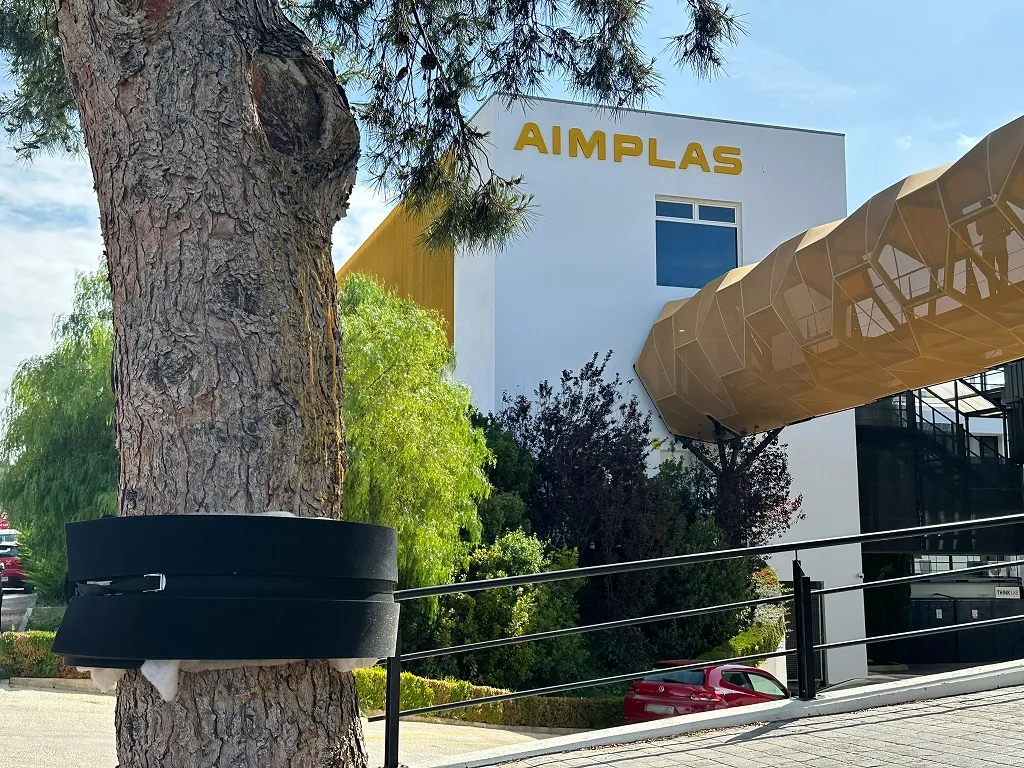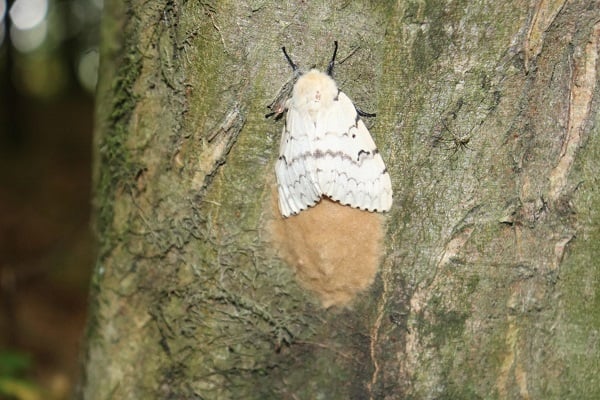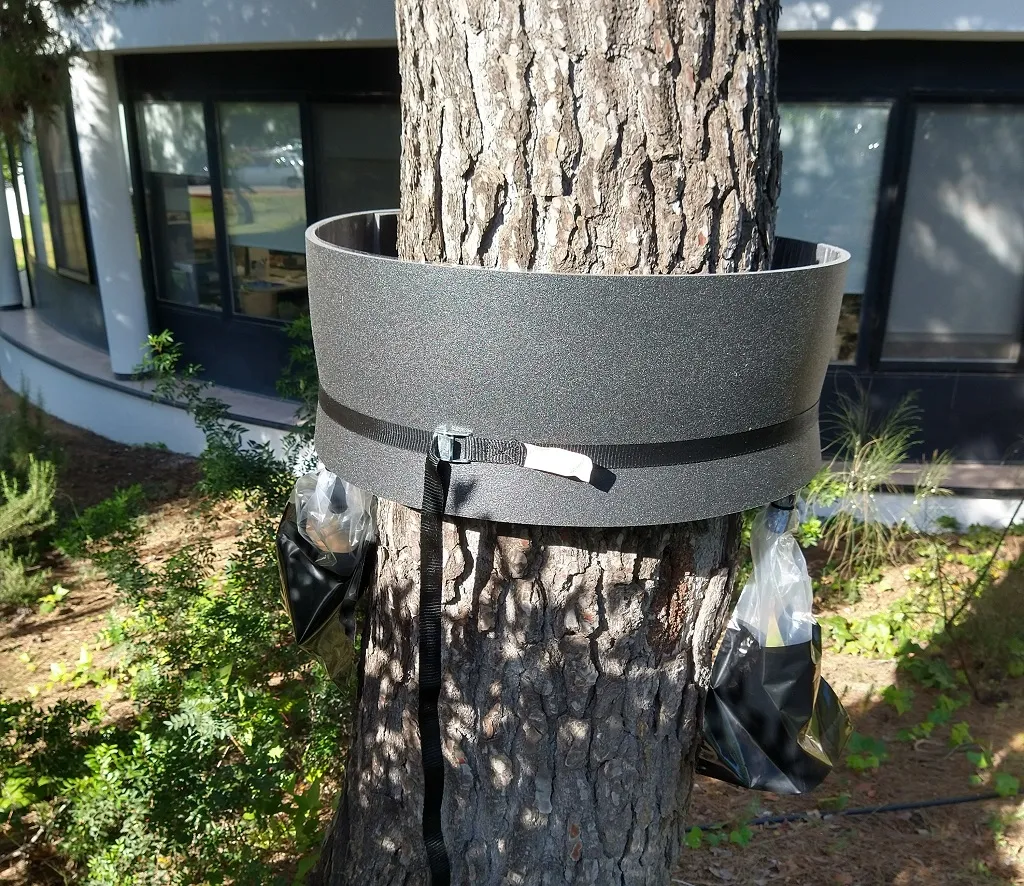The LIFE eGymer Project successfully tested different kinds of chemical-free traps to control the gypsy moth in Southern Europe forests

The gypsy moth is an indigenous species that infects oak forests in Central and Southern Europe, Asia and Africa. The larvae’s voracious appetite poses a major environmental problem because the species can completely defoliate trees and cause health problems to humans and animals in the form of allergies and skin irritation such as dermatitis and hives, as is widely reported after contact with caterpillars.
Modern aerial technologies to control this pest are based on the application of insecticides. However, the high application costs and lack of suitable equipment, personnel skills and training prevent large-scale treatment and make the use of application programmes unfeasible for protecting high-value forests in many countries. Moreover, the quantity of insecticide needed for large-scale applications has a negative effect on biodiversity in these ecosystems and these insecticides cannot be used near cities or outlying areas.
To solve this problem, the consortium of the LIFE eGymer Project has successfully tested different kinds of chemical-free traps in a total of 18 areas in Spain, Slovenia, Greece, Hungary and Croatia.

The main goal of LIFE eGymer is to use a non-chemical, eco-friendly pest control solution by developing and implementing smart, recyclable traps, mass and larval trapping, and mating disruption techniques to remotely monitor and effectively control different stages of the gypsy moth with a much wider application time window compared to chemical control methods.
The first results have evaluated the influence of trap type on the capture of the gypsy moth adult males in 18 areas in Europe; two in Slovenia (Ginjevec 1 and Ginjevec 2), two in Spain (Montnegre – Corredor and Les Gavarres), twelve in Greece (Pindos, Drama, Petralona 1, Petralona 2, Kouri, Portaria, Lykodromio, Stavroupoli, Kryoneri cemetery, Kryoneri 1, Kryoneri 2, St. Nicholas), one in Hungary (Telki) and one in Croatia (Koška).
Area-wide monitoring of these pilot areas has been essential in order to detect ‘hot spots’ of the gypsy moth population and to carry out control treatments early enough to prevent further spread. Different trap designs have been tested in this study, using the number of adults caught as a means of verifying efficacy.
The data obtained illustrate the presence and distribution of the gypsy moth in several European countries, especially in Southern Europe, for which little information is available compared to other ecozones. In addition, some of the traps developed have been found to perform better than others at capturing the gypsy moth. They will be further examined to create a final trap design that is effective at detecting this species in the adult stage, and to develop area-wide strategies for detection, estimating and management.
Mitigating deforestation is one of the priorities of Sustainable Development Goal (SDG) 15 Life on Land. The data obtained in this research project could be adapted to a harmonized monitoring protocol in Europe that uses standardized trap designs to control this pest in large geographical areas.
The LIFE eGymer project is co-funded by the LIFE Programme of the European Union under contract number LIFE20 ENV/GR/000801. The consortium is made up of partners University of Thessaly (UTH), Agricultural University of Athens (AUA), University of Ljubljana (UL), Universitat de Lleida (UdL), PROBODELT and AIMPLAS.


